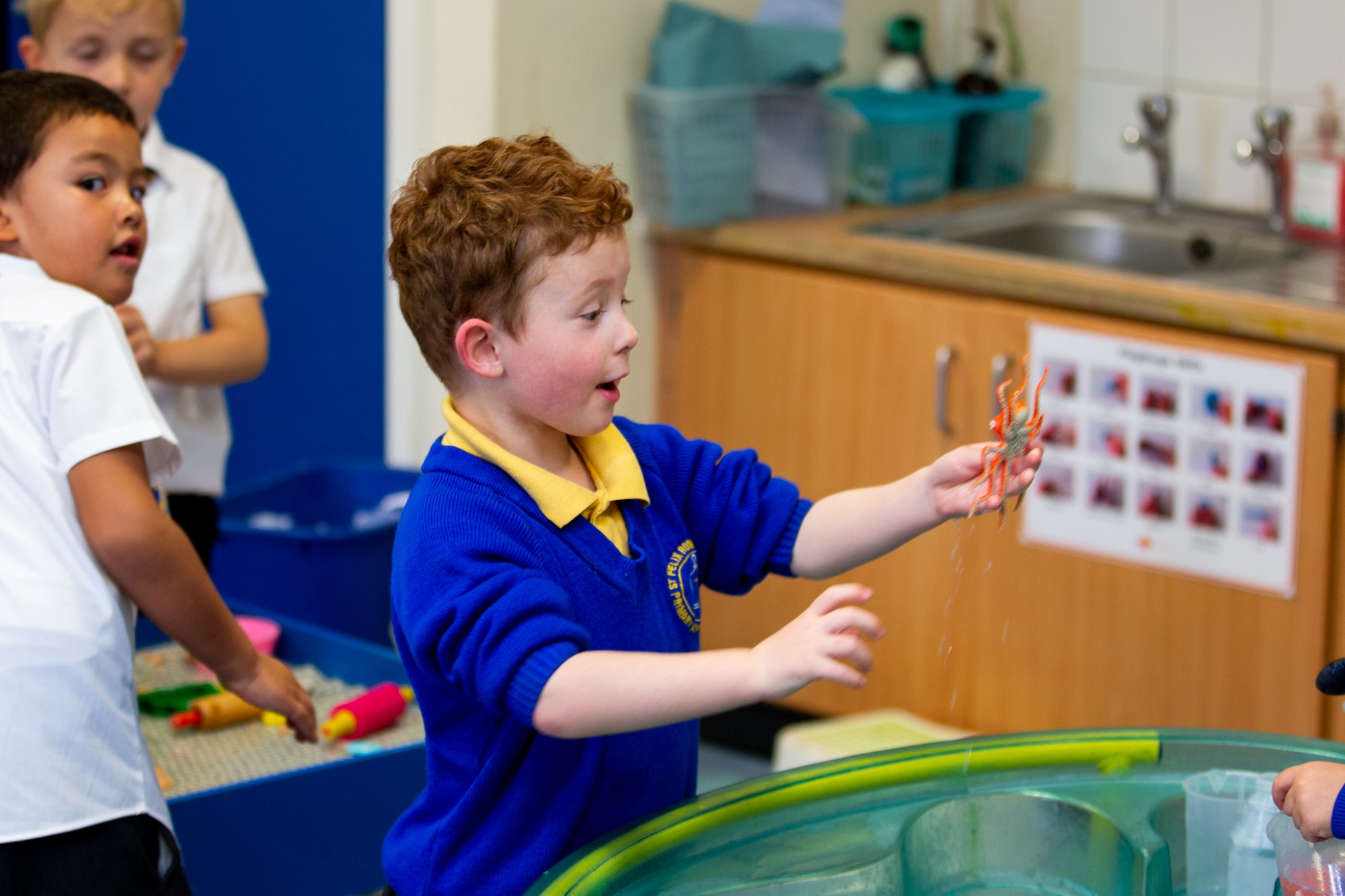Early Years Foundation Stage (EYFS)
 Within the EYFS, there are 7 areas of learning and development.
Within the EYFS, there are 7 areas of learning and development.
These are split into the 3 prime areas, which are essential for children's healthy development and future learning. They are:
· Communication and Language
· Physical development, and
· Personal, Social and Emotional development
These are then built upon and strengthened by the 4 specific areas, of:
· Literacy
· Mathematics
· Understanding the World
· Expressive arts and design
Intent: At St Felix, we offer a curriculum rich in wonder and memorable experiences. We work hard to provide a stimulating environment that provides exciting opportunities, promotes challenge, exploration, adventure and a real love of learning. It is our intent that all children develop physically, verbally, cognitively and emotionally in an environment, which values all cultures, communities and people.
We aim for our children to be confident and independent, to believe in themselves and interact positively with others. We understand that play is an integral part of learning and this is at the heart of our Early Years curriculum. We believe that the correct mix of adult-directed and child-initiated play ensures the best outcomes for pupils. Warm and positive relationships between staff and children, consistent routines and strong relationships with parents are key. We recognise the crucial role that early year’s education has to play in providing firm foundations upon which the rest of a child’s education is built.
Progression of EYFS curriculum into KS1
Implementation: We meet the welfare requirements laid down in the Statutory Framework for the Early Years Foundation Stage and actively safeguard and promote the welfare of all of our children. We prioritise creating a ‘language rich’ environment through the use of songs, nursery rhymes, stories and providing time for quality interactions between adults and between peers. Trained staff ensure that interactions are positive and progressive, allowing children to flourish and gather words at pace in order to become confident communicators. Children are encouraged to become early readers through enjoyment of books and the systematic teaching of phonics using Little Wandle. The children learn to develop their mathematical thinking through direct teaching and exploration. We want our children to become confident mathematicians who can apply what they have learnt to real life experiences. We have built our school environment to enable our children to strengthen their core muscles through physical play. Children spend time outdoors in their natural environment in all weathers. They develop through wonderful, exploratory, sensory experiences in our mud kitchen and sand and water areas. Our learning environment is adaptable in order to reflect children's interests and progression. The children are supported to learn to work together, manage their feelings and ask questions through skilled adult-facilitated play.
The curriculum is taught through topics which are enriched with classroom enhancements, trips and visitors. Topics are supported by quality key texts. These are chosen carefully to encourage children's speech, language and communication development. All planning however, is flexible and responsive to children’s needs, so plans can be changed and adapted dependent on children’s interests. We understand the importance of parental engagement and believe that our parents have a crucial role to play in their children's education. We work hard to create strong partnerships between home and school. Parents enjoy using Tapestry to engage in their child's learning and share experiences from home.
Impact: As part of the learning and teaching process, children are assessed in relation to their progress towards the Early Learning Goals. These judgements are made on the basis of accumulative observations and in depth knowledge of the children acquired through ongoing assessment. These ongoing assessments are used to inform planning and next steps in teaching and learning for all children throughout the year. We strive to ensure each child makes a very good level of progress through the Early Learning Goals, from their individual starting points. All children get the best possible start to their school life and develop the knowledge and skills to reach and exceed their potential in KS1.
